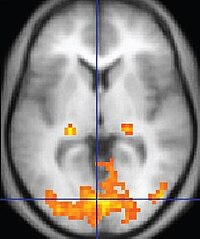
A deep convolutional neural network model for automated identification of abnormal EEG signals
Sign Up to like & getrecommendations! Published in 2018 at "Neural Computing and Applications"
DOI: 10.1007/s00521-018-3889-z
Abstract: Electroencephalogram (EEG) is widely used to monitor the brain activities. The manual examination of these signals by experts is strenuous and time consuming. Hence, machine learning techniques can be used to improve the accuracy of… read more here.
Keywords: eeg signals; abnormal eeg; convolutional neural; model ... See more keywords

The Dangers of Over-Reading an EEG.
Sign Up to like & getrecommendations! Published in 2019 at "Journal of Clinical Neurophysiology"
DOI: 10.1097/wnp.0000000000000598
Abstract: Approximately 30% of patients seen in specialized epilepsy clinics or admitted for EEG-video monitoring for “refractory seizures” do not have epileptic seizures and hence have been misdiagnosed. Often the history is not particularly suggestive of… read more here.
Keywords: medicine; abnormal eeg; dangers reading; cancel ... See more keywords

Risk of Developing Seizures in Children With Abnormal EEG Findings During Polysomnography.
Sign Up to like & getrecommendations! Published in 2022 at "Pediatric neurology"
DOI: 10.2139/ssrn.4096921
Abstract: BACKGROUND Polysomnography (PSG) utilizes abbreviated electroencephalogram (EEG) to stage sleep. The aim of this study was to determine whether epileptiform abnormalities on this limited EEG coverage correlated with abnormalities on routine EEG (rEEG) and an… read more here.
Keywords: abnormal eeg; neurology; epileptiform discharges; seizures children ... See more keywords

Automatic detection of abnormal EEG signals using multiscale features with ensemble learning
Sign Up to like & getrecommendations! Published in 2022 at "Frontiers in Human Neuroscience"
DOI: 10.3389/fnhum.2022.943258
Abstract: Electroencephalogram (EEG) is an economical and convenient auxiliary test to aid in the diagnosis and analysis of brain-related neurological diseases. In recent years, machine learning has shown great potential in clinical EEG abnormality detection. However,… read more here.
Keywords: abnormal eeg; ensemble learning; automatic detection; detection abnormal ... See more keywords